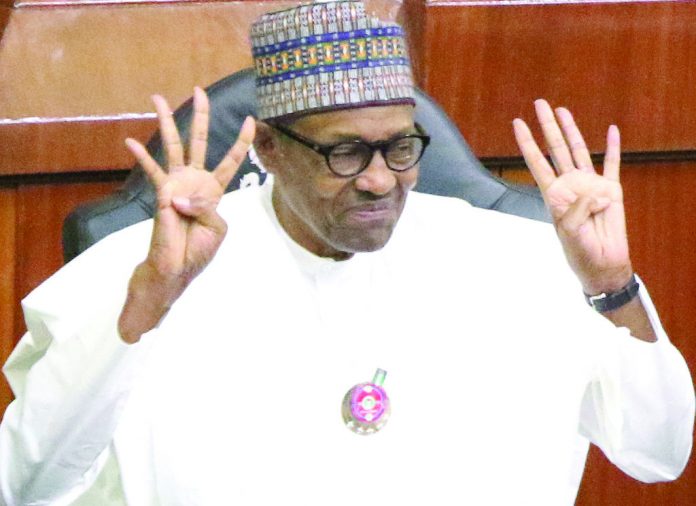By Ayo Oyoze Baje
Let me begin with these pertinent questions: Why do some people struggle for political power, only to use it as an instrument of oppression against their kinsmen and fellow countrymen? Why do leaders find it difficult to learn lasting lessons, of choosing good over evil, from the hands of history? Agreed, power is the capacity to control the destinies of man and materials. Like the magic wand it translates sweet dreams to concrete realities. Yet, it is a two-edged sword that cuts into pieces those who use it for self aggrandizement.
But unfortunately, many men in positions of political power, either through the ballot box or the bullet have equated such to their personal estate; to be run according to their whims and caprices. For personal gains, they would go to any length to cheat, to lie, to crack down on critics, using the Machiavellian tactics of the end justifying the means. Unfortunately, that end always comes calling in disgrace or death!
Before mounting the pedestal of leadership they would make fanciful promises of redressing the wrongs or sufferings of their people. But once in the saddle, power becomes the heady intoxicant for such greed-driven men or, it turns into a lusty temptress in the loins of such political prostitutes! They become deaf to the yearnings of the people they claim to lead. Either in khaki or agbada they are the despots, tyrants and autocrats who begin to play God. They want to be feared, obeyed and become the alpha and omega whose word is law.
They soon forget that those vested with state powers are supposed to be chief servants to their people, as former President Umar Yar’ Adua(of blessed memory) rightly canvassed. They also forget the hand of God and in the absence of repentance they become the victims of their own ploys. For, as the biblical injunction goes, “those who raise themselves up shall be brought low, and those who humble themselves shall be exalted”
The list seems endless, but let us consider the rise and fall of Mobutu Sese Seko, Kamuzu Banda, Joseph Estrada, Emperor Bokassa, Idi Dada Amin, Slobodan Milosevic, Indonesia’s Suharto, Augustino Pinochet of Chile, and of course, Sani Abacha of our own Nigeria. Driven by the lust for mesmerizing money, plundering power and mad material acquisition how can we? As the character Creon told his sentry in the play ‘Sophocles’; “Money! Money is the curse of man, none greater. That is what wrecks cities, banishes men from home, tempts and deludes the most well – meaning soul; pointing out the way to infamy and shame. Well, they shall pay for their success”. A few instances would suffice.
For instance, by 1998 Suharto had held power in Indonesia for 32 years. In 1999 Time Magazine estimated that Mr. Suharto and his family had salted away about $15 billion, including $96 billion in an Austrian bank! He was accused of embezzling $400 millions from charities. His wealth was estimated at more than ₦435bn, enough to repay Indonesia’s national debt. Within that period he turned hiscountry andbusinessman son, Hutomo Mandela Putra into an instant billionaire.
Suharto, took veritable lessons of power from his village, Java some 450km east of Jakarta. There the peasant villagers did the bidding of the chief in exchange for protection. He founded many parties, with as many as 100 springing up. He fuelled bloody riots between Christians and Muslims by paid provocateurs. Markets and towns were razed to rubbles. He was the prime manipulator of appointments in the military. But all that did not stop him from being outset from power in May, 1998.
Ditto for Augustino Pinochet Ugarte of Chile. He rode to power when he overthrew the elected Marxist Salvador. Though his 17 years dictatorship modernized Chile’s economy but it left thousands of opponents dead. That was before democracy was restored in 1990. Yet, that could not make Chileans forget the gruesome torture and disappearance of thousands of their fellow countrymen.
Even after stepping down from power as army chief, the cunning military politician orchestrated a 1980 constitutional referendum cloaked in parliamentary legitimacy for 10 years. Pinochet wanted to take a lifetime seat in the senate, but his fall from grace to grass is another lesson in history.
Enter Mobutu Sese Seko of Zaire. He too, like Pinochet swept to power in a coup de tat, by ousting President Tshobe. That was in the early 60s at the height of the Zairian crises. Thirty years later the flamboyant despot left Zaire much poorer than he met it. He single handedly milked it dry. Like Suharto he was so rich he could pay Zaire’s foreign debt from his personal account. Like the dictators before him too, Mobutu fell from power disgracefully and eventually died in 1998.
On his part, Sir Kamuzu Banda ruled his country for 30 years. He came to power promising to make available the basic needs of his people, including food, shelter and clothing. But it was all a ruse. Instead, he tasted power and became deaf to the drumbeats of his people’s crying needs. Sheer opulence, flamboyance, vanity became his ruling passion. Banda’s official palace had 300 rooms, all air-conditioned, built on a 555-hectare of land. It had largest hall that could comfortably sit 600 guests, 16 homes for palace officials and 176 houses for his junior staff.
Like all dictators he clamped down on all forms of opposition, transmuting into a life president. But the law of Karma caught up with him. He was toppled from power and had the bitter taste of vengeance witnessing the seizure of his palace, while confined to a governor’s lodge. He died at 96, full of remorse for his misdeeds.
And so did Ferdinand Marcos of Philippines, who died ignominiously, back in Hawaii, while in exile in 1989. He got into political power in 1966 with his extremely vainglorious wife, Imelda in toe. Marcos’ 20 years reign left his country billions of dollars less than he met it. He had assets including bank deposits, mansions, automobiles, jewelry, company shares and his wife’s opulent show of the famed 3,000 pairs of shoes. He was removed from office in 1986 after looting the treasury, to the tune of tens of billions of dollars, and after the murder of Beligno Aquino.
Unfortunately, Joseph Estrada, the former movie-star learnt little or nothing from the disgrace of his countryman, Marcos. Described as a ruthless manipulator he squandered the nation’s meagre resources on his string of mistresses and magnificent mansions. One bedroom had capacity of accommodating 20 families! Estrada invested $10million under false name and amassed $66 million in less than two years. He pocketed 130 million pesos ($2.6million) in excess taxes meant for tobacco formers. He collected bribes from illegal syndicates, all to maintain his extravagant life style. And like the many deaf despots before him, Estrada was impeached from power!
Some three decades after these strings of misrule, has the world, nay Africans started to enjoy a new narrative of leadership that is people-oriented, selfless, corruption-free, nationalistic, visionary, free from nepotism and driven by the national interest? The answer is there for all to see!















